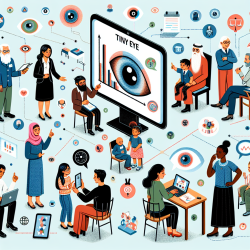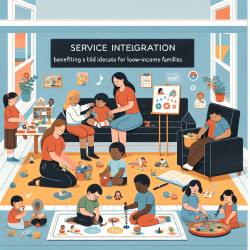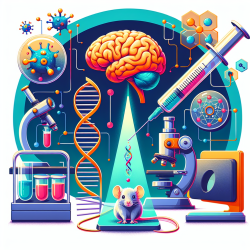Introduction
As practitioners dedicated to improving health outcomes, we recognize the power of evidence-based approaches. The recent research article, "Building the Evidence for a Rights-Based, People-Centered, Gender-Transformative Tuberculosis Response," offers a compelling framework that can be applied to enhance our practices, particularly in the realm of speech-language pathology for children. By integrating these findings, we can foster environments that not only address health challenges but also empower communities and individuals.
Understanding the CRG Assessment
The Community, Rights, and Gender (CRG) assessment developed by the Stop TB Partnership is a qualitative tool that highlights the importance of community involvement, human rights, and gender considerations in the fight against tuberculosis (TB). This assessment has been conducted in 20 countries, revealing critical insights into the barriers and opportunities within TB responses. These insights are invaluable for practitioners aiming to adopt a holistic, rights-based approach in their interventions.
Key Findings and Their Implications
The CRG assessment underscores several challenges, including limited access to health services, disease-based discrimination, and the impact of patriarchal norms on women affected by TB. These findings are not only relevant to TB but also resonate with challenges faced in other health domains, such as speech-language pathology.
- Availability and Accessibility: The assessment reveals that many TB-affected individuals face barriers in accessing healthcare services. For speech-language pathologists, this highlights the need to ensure that therapy services are accessible and inclusive, particularly for vulnerable populations.
- Gender Dynamics: The impact of gender on health outcomes is significant. Practitioners should consider gender-sensitive approaches that address the unique needs of boys and girls in therapy settings.
- Community Engagement: Involving communities in health interventions can lead to more sustainable outcomes. Speech-language pathologists can collaborate with families and communities to create supportive environments for children.
Practical Steps for Practitioners
To integrate the findings from the CRG assessment into practice, practitioners can take the following steps:
- Advocate for Rights-Based Approaches: Ensure that therapy practices respect and promote the rights of children and their families, fostering an environment of dignity and respect.
- Promote Gender Sensitivity: Tailor interventions to address the specific needs of different genders, recognizing the unique challenges they may face.
- Engage with Communities: Work collaboratively with community groups to identify barriers to access and develop strategies to overcome them.
- Leverage Data for Decision Making: Use data-driven insights to inform therapy practices and improve outcomes for children.
Encouraging Further Research
While the CRG assessment provides a robust framework, there is a need for continued research to explore its application in different health contexts. Practitioners are encouraged to engage in research initiatives that further investigate the intersection of rights, community engagement, and health outcomes.
To read the original research paper, please follow this link: Building the Evidence for a Rights-Based, People-Centered, Gender-Transformative Tuberculosis Response.










